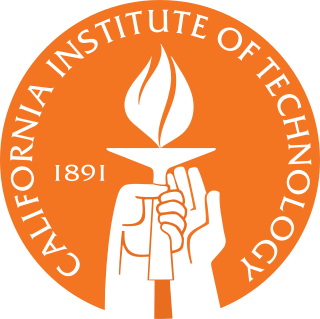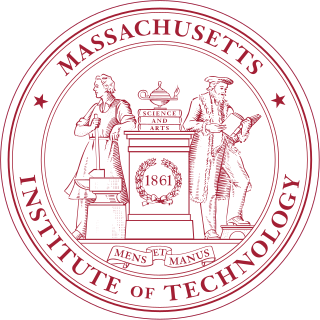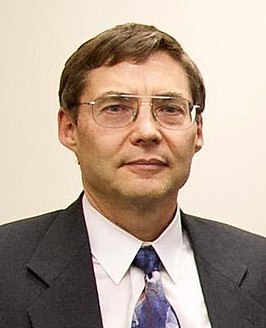
The California Institute of Technology (Caltech) is a private doctorate-granting research university in Pasadena, California. Known for its strength in natural science and engineering, Caltech is often ranked as one of the world's top-ten universities.

Science education is the field concerned with sharing science content and process with individuals not traditionally considered part of the scientific community. The learners may be children, college students, or adults within the general public; the field of science education includes work in science content, science process, some social science, and some teaching pedagogy. The standards for science education provide expectations for the development of understanding for students through the entire course of their K-12 education and beyond. The traditional subjects included in the standards are physical, life, earth, space, and human sciences.

Brooklyn College is a public college in Brooklyn, New York City. It is part of the City University of New York.
ESPCI Paris is a prestigious institution of higher education founded in 1882 by the city of Paris, France. It educates undergraduate and graduate students in physics, chemistry and biology and conducts high-level research in those fields. It is ranked as the first French École d'Ingénieurs in the 2017 Shanghai Ranking.

The Illinois Mathematics and Science Academy, or IMSA, is a three-year residential public higher education institution in Aurora, Illinois, United States, with an enrollment of approximately 650 students.

The University of Science and Technology of China (USTC) is a national research university in Hefei, Anhui, China, under the direct leadership of the Chinese Academy of Sciences (CAS). It is a member of the C9 League, China's equivalent of the Ivy League. It is also a Chinese Ministry of Education Class A Double First Class University. Founded in Beijing by the CAS in September 1958, it was moved to Hefei in the beginning of 1970 during the Cultural Revolution.

The Louisiana Scholars' College at Northwestern State University, or "Scholars' College" as it is known by its students and faculty, is Louisiana's only designated four-year, selective-admissions honors college in the liberal arts and sciences.
The MIT Entrepreneurship Center is one of the largest research and teaching centers at the MIT Sloan School of Management, the business and management school at the Massachusetts Institute of Technology. It was founded in the early 1990s and charged with the mission to develop MIT's entrepreneurial activities and interests in education and research, alliances, and the community.
Physics education or physics education research (PER) refers both to the methods currently used to teach physics and to an area of pedagogical research that seeks to improve those methods. Historically, physics has been taught at the high school and college level primarily by the lecture method together with laboratory exercises aimed at verifying concepts taught in the lectures. These concepts are better understood when lectures are accompanied with demonstration, hand-on experiments, and questions that require students to ponder what will happen in an experiment and why. Students who participate in active learning for example with hands-on experiments learn through self-discovery. By trial and error they learn to change their preconceptions about phenomena in physics and discover the underlying concepts.

Chemistry education is the study of the teaching and learning of chemistry in all schools, colleges and universities. Topics in chemistry education might include understanding how students learn chemistry, how best to teach chemistry, and how to improve learning outcomes by changing teaching methods and appropriate training of chemistry instructors, within many modes, including classroom lecture, demonstrations, and laboratory activities. There is a constant need to update the skills of teachers engaged in teaching chemistry, and so chemistry education speaks to this need.

Radia Joy Perlman is an American computer programmer and network engineer. She is most famous for her invention of the spanning-tree protocol (STP), which is fundamental to the operation of network bridges, while working for Digital Equipment Corporation. She also made large contributions to many other areas of network design and standardization, such as link-state routing protocols.

Mark Stephen Wrighton is an American former academic and chemist who served as the 14th Chancellor of Washington University in St. Louis from 1995 to 2019.

The Vagelos Scholars Program in the Molecular Life Sciences is an undergraduate program at the University of Pennsylvania, named after Penn alumnus and Merck CEO Roy Vagelos and his wife Diana.

Mathematical Grammar School, is a special school for gifted and talented students of mathematics, physics and informatics located in Belgrade, Serbia. It is ranked number one at International Science Olympiads by the number of medals won by its students.
Frances Kelsey Secondary School (FKSS) is a high school located in Mill Bay, British Columbia, Canada, named after Dr. Frances Oldham Kelsey. The school, under founding Principal Allan MacLeod, adopted a self-directed learning system. FKSS is one of School District 79 Cowichan Valley's four mainstream secondary schools.
The Special Class for the Gifted Young is a program aimed to select gifted young students to enter the universities in China. First established in 1978 at the University of Science and Technology of China, it was a major innovation in China's higher education. The idea was suggested by renowned scientists such as Tsung-Dao Lee, C. N. Yang, and Samuel C. C. Ting, and supported by the then Vice-premier of the State Council Fang Yi. The objective of the class is to explore the most efficient ways to nurture promising youth. Peking University, Tsinghua University, Nanjing University, Wuhan University, Jilin University, Shanghai Jiaotong University and Huazhong University of Science and Technology also launched similar programs. But they were all shut down for all kinds of reasons. Currently, only the University of Science and Technology of China and Xi'an Jiaotong University still have this program.

Compass International School Doha is a private, co-educational school in Doha, Qatar. It is an International School with campuses located in Gharaffa, Madinat Khalifa, Rayyan and a new campus opening in September 2019 in Themaid. It was founded in 2006 by Fieldwork Education and the school is part of the Nord Anglia group of schools.
College of the Pacific is the liberal arts core of the University of the Pacific and offers degrees in the natural sciences, social sciences, humanities, and the fine and performing arts. The College houses 18 academic departments in addition to special programs such as gender studies, ethnic studies and film studies. A total of 31 majors and 36 minors are offered, and students may self-design a major or minor. In all, over 80 undergraduate majors are available across the University of the Pacific's schools and colleges. The College of the Pacific is located on the Stockton, California campus. Dr. Rena Fraden is the current Dean of the College.
The Concourse Program is a freshman learning community at the Massachusetts Institute of Technology (MIT). Concourse admits up to fifty select MIT freshmen a year who are interested in understanding the breadth of human knowledge and the larger context of their science and engineering studies. Concourse has been recognized with the 2011 Irwin Sizer Award for Most Significant Improvement to MIT Education.

Faculty of Science is one of the faculties of the University of Zagreb.















